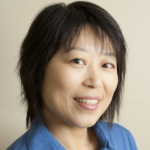Neck pain is one of the most common reasons for doctor visits. It is estimated that approximately Million people currently suffer with chronic neck pain. Acupuncture is one of the most widely used treatment options for neck pain, as it has a proven history of effectively treating this condition.
In Acupuncture theory, pain is said to be caused by the stagnation of either Qi (energy or life force) or blood in the body. When energy gets stuck, pain results. Pain that is due to qi stagnation tends to be rather mild or achy in nature, whereas pain due to blood stagnation is more severe, sharp, fixed, or stabbing. Acupuncture is often effective in either case, as it has the unique ability to regulate the circulation of Qi and restore blood flow through painful areas.
Acupuncture works by regulating the flow of Qi in meridians, which can be seen as networks that distribute Qi through the body. The meridians correspond to the major organs of the body. The bladder meridian runs along the nape of the neck and is, therefore, primarily implicated in the treatment of neck pain. The energetic of the bladder meridian relate to fear, anxiety, ambition, will power, and urgency. Therefore, many people with neck pain also have deeper layers of fear that need to be released, either from whiplash as occurs in a car accident, or in relating to the daily life circumstances of work, money, and survival. The Qi tends to get stuck around the point Bladder 10 at the nape of the neck, which is a central point for clearing fear and anxiety.
Acupuncture should be a relaxing, gentle treatment approach, even if the painful area is being stimulated. There are occasions where the neck won’t be touched at all, as the treatment will be more effective by stimulating distal points that correspond to the imbalanced meridian.
While acupuncture is an excellent treatment option for all kinds of neck pain, Chinese herbs are used frequently as well. The following formulas are used regularly for this purpose:
-
Neck Formula by Plum Flower: This formula has been found to be 92% effective in Chinese hospitals for treating all kinds of neck pain.
-
Ease Plus by Health Concerns: Helps with neck and upper back tension due to excessive stress and worry
-
Ge gen tang: Often used for neck pain due to the onset of a cold, but has been applied for many types of chronic neck pain as well. This formula has also been found to be useful for helping chiropractic adjustments hold for longer periods of time.
Regular yoga practice is also of great benefit for most kinds of chronic neck pain. The following poses all have a direct action on creating space between the cervical discs and relieving muscle tension through the upper back into the occipital region:
- standing forward bend
- downward facing dog
- bridge
- plow
- shoulder stand
- fish
Meditation and deep breathing exercises can also be helpful, as most people with chronic neck and upper back pain tend to breathe quite superficially. Training yourself to breathe more deeply oxygenates the muscle tissue and provides an internal massage for the deepest layers of your musculature.
Most of my patients with chronic neck pain commit to acupuncture once a week for 4-6 visits, at which time we reassess for progress. Most patients find that they feel much better after each treatment, not only in relation to the neck pain, but in their overall sense of health and well being.

